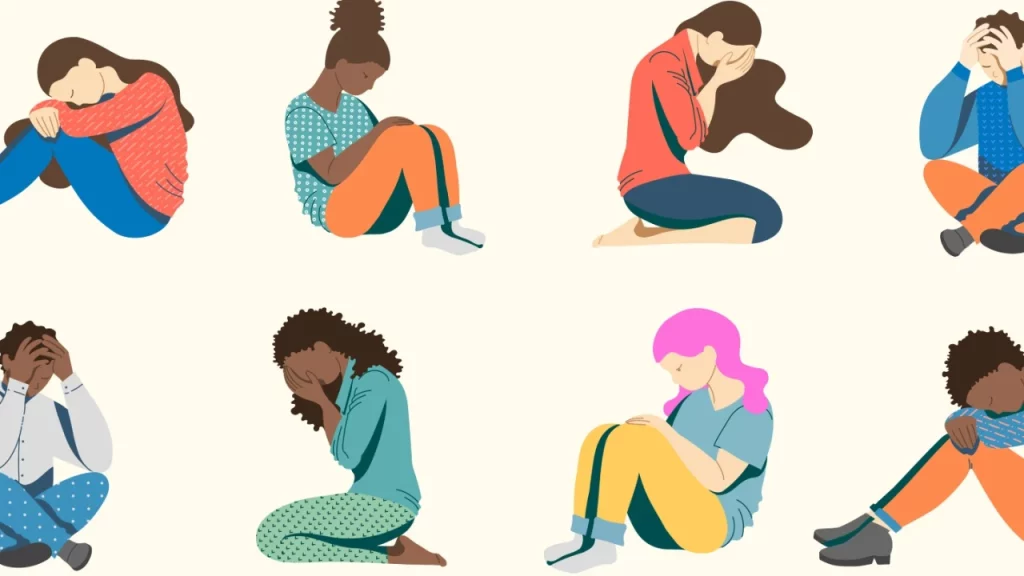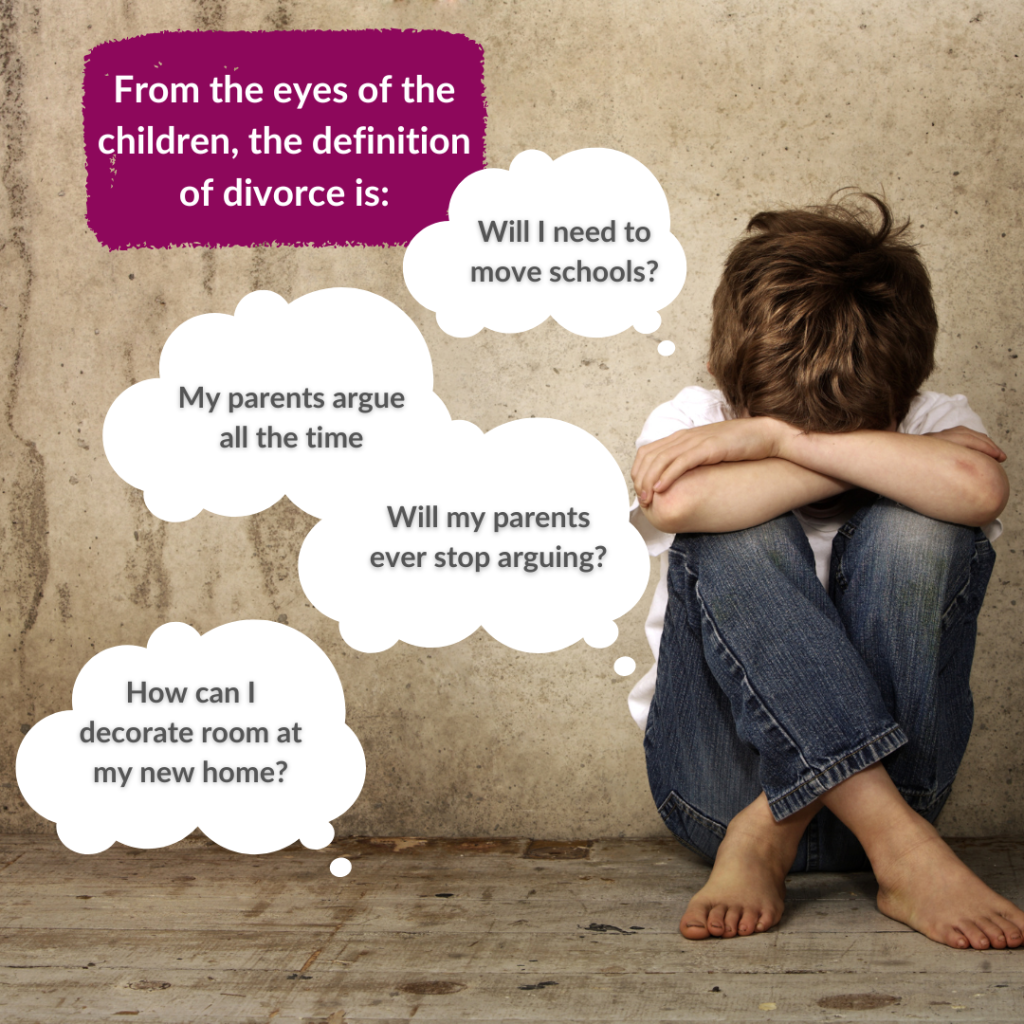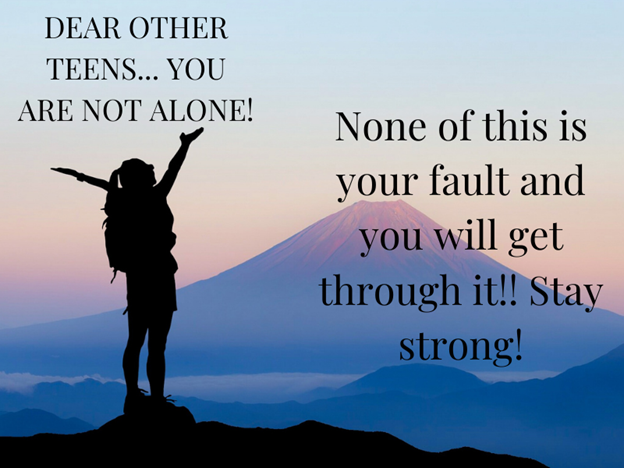What can we find for you?
How to Prioritize ME and my mental health and emotional wellbeing?

As parents, it’s easy to get caught up in the day-to-day demands of raising a family, and we can forget to take care of ourselves. Sometimes, we even feel overwhelmed, anxious, or depressed. Although it is normal and okay to have these feelings, it is important to take care of them so they do not spoil over into your relationships with your children or co-parent. When we prioritize our mental health and take care of ourselves, handling challenges is a bit easier. Here are some ways to prioritize YOU:
1) Get Outside
Whether going outside means just stepping outside for a moment to breathe or going for a long walk, spending time outside triggers our brains to produce chemicals that result in feelings of calmness, joy, creativity, and may even increase your concentration. Research shows that spending time in the sun each day has a positive effect on decreasing depression. Remember to stop and smell the roses!
To learn more about opportunities to get outside in San Diego, click here: https://www.sandiego.org/articles/25-fun-free-things-to-do-in-san-diego.aspx
2) At Home Spa Day
Take time to care for yourself! What does this look like? For some, they like taking a longer shower or putting on some lotion. For others, they like applying a face mask, lighting some candles, and sinking into a nice warm bath. Be creative by getting some bath salts, fill the tub and give yourself a pedicure. A little extra nurturing goes a long way!
Need some direction? This YouTube video provides you a luxurious DIY home pamper routine on a budget: https://www.youtube.com/watch?v=zj8dyX4P1LM&pp=ygUQZGl5IGhvbWUgc3BhIGRheQ%3D%3D
3) Connect with Others
Sometimes as parents, we can feel isolated in our community, in our feelings, in our hardships. By reaching out and connecting with others, we create a support system to lean on in both moments of difficulty and moments of happiness. If you are struggling, the good news is, so are others. Find places to connect. Join a Facebook group related to your hobby, talk with other parents at your kids’ school, ask a friend out to coffee or go to an exercise class or join a team sport for adults. When you connect with others, you will feel better about yourself, so get off the couch and do something different!
Here are some local San Diego Groups and Parents: https://www.sandiegoparent.com/
4) Therapy
After a hard day, we are able to recenter ourselves knowing that tomorrow will probably be an easier day. During hard times, anxiety, depression, or feeling overwhelmed can come from the lack of certainty that tomorrow will be easier. During these harder times, therapy can help provide an outlet for us to unpack and let go. Not all therapists are a good fit. Sometimes it takes meeting 3 or 4 therapists until you find the right one. But, once you do, there is a lot of personal power in finding someone to help you manage your feelings and whatever else is interfering in your happiness.
Don’t know where to start? Here is one: https://www.betterhelp.com/?frombhhealth=1
5) Grounding Techniques
Grounding techniques are ways that each of us can come back to the present during difficult times. The practice of doing this ranges widely from person to person. For some, grounding techniques are reconnecting to where your body is by lying on the ground, squeezing playdough, or pressing your toes into the floor. For others, they might be paying attention to different senses of your body by lighting a candle, making a cup of tea, putting on calming music, or wearing a comfy sweatshirt. You can find the right technique for you by speaking with a therapist or by doing your own research. Calming mediations are good too.
For more grounding techniques, click here: https://www.healthline.com/health/grounding-techniques
With Mother’s Day just passed and Father’s Day around the corner. Make a commitment to yourself to take extra care of yourself and, if you are struggling, especially your mental health. Remember, feeling overwhelmed, anxious, or depressed from time to time as a parent is completely normal. During these times, it is important to re-center yourself, and actively and intentionally create moments of positivity. Remember, you can’t control what your kids, co-parent, family members, or anyone else does, but you control what you think and feel and how you respond to others. Your kids are watching your every move so make good moves to prioritize yourself, including your mental and emotional well-being.
What are children and teens really thinking?

Divorce is the break-up of two people who were in an intimate married relationship. At Kids’ Turn San Diego, the definition of divorce is the break-up of two parents who brought beautiful children into this world. From the eyes of the children, the definition of divorce is my parents argue all the time, will I need to move schools, how can I decorate my room at my new home, and will my parents ever stop arguing and fighting.
As March 18th is fast approaching, I think back three years when we were told to quarantine, when my daughter moved home from college, and when Kids’ Turn San Diego quickly transitioned to remote working and virtual programming. Thank goodness for zoom and the internet! As the Executive Director, I lead our organization through unprecedented times and lived by the motto of “we’re building and flying at the same time”. We didn’t skip a beat and continued to serve every parent, child and family that requested our services. Many things changed for all of us, but for me, one change has provided me with the opportunity of really understanding the challenges of divorced families. I, by the way, grew up in a divorced family so I know what it was like being an 8-year-old child transitioning from one home to two, changing schools and eating lots of macaroni and cheese. Fortunately, my parents figured it out quickly and did it well. They had conflict but they didn’t put me and my sister in the middle and they didn’t ask me or my sister to deliver child support checks or messages. They didn’t talk with us about court or money, and for the most part, were pleasant with each other. My parents both attended our events and shared the celebration times and never gave my sister or me any reason to think that the failure of their marriage was our fault.
But, over the past three years, as the Executive Director of Kids’ Turn San Diego, I have served as a Behind the Scenes staff member of the parent groups of our Family Workshops for Separated and Divorced Families. To date, I have personally been Behind the Scenes during all four weeks of 34 Family Workshops. I have observed transformation! When you hear a parent at graduation tell us that they are listening to their children more and giving them undivided attention, or things like “I learned to choose peace over power”, “I learned to respond instead of react” or “I learned that I have no control over others, I can only control my own words and behaviors”, it warms your heart. These parents have learned new skills that resulted in a personal transformation that will make them better parents and better people. I watch the graduations and smile knowing that the children of these parents will be blessed with parents that did it right, like my parents.
But, then I hear one of our Group Leaders and their statement is profound. “Although not always stated by the children in the program, from their perspective, when parents argue and fight over custody, the children perceive their parents’ behaviors as fighting over them. They begin to see themselves as ‘the conflict’ and begin to believe that their parents’ divorce is their fault.”
What does this statement really mean? When parents battle and fight over the custody of their children, which days they will be with one parent or the other, the battle and the fight is over your children, and your children see themselves as the cause of the fight. If your children didn’t exist, there wouldn’t be a battle or a fight. Is this the message you want to be giving to your children? They do not care which home they are at more. They want to see both parents, they want to be happy children who transition from one home to the other with parents that are pleasant and nice to them and each other. They say, perception is everything. I really hope you will think about this! Do you really want your children growing up perceiving and believing that they are the cause of your conflict, divorce and unhappiness? I hope not! If you haven’t attended a Kids’ Turn San Diego co-parenting program, we invite you to invest in yourself, your family and your children. If you have and find yourself still angry and experiencing conflict, join us for a Continue the Conversation Class or come back to the program. We are never too old to learn and happiness can be part of all of our lives. As an adult child of divorce, and with all due respect, please get along with our co-parent and know that if you adjust well and move through life with ease, your children are more likely to adjust well. When you choose peace over power, your children get to feel happier!
YOU ARE NOT ALONE!
Research shows that the human brain is about 90% developed by the age of 3 and recent studies have shown that the brain continues to grow and develop and undergoes a growth spurt in the teen years, with full development around the age of 25 or 26 (https://www.sharecare.com/health/brain/when-human-brain-stop-growing).
The brain growth spurt was alive and in action in our most recent Family Workshop Teen Group! In this program, the teens learn skills, strategies and techniques to better communicate with their parents and to better manage themselves within their families. They offered a profound message to all teens who are experiencing a family separation or divorce.

If you have a teenager, please share this message. If you have a child of any age, please pay attention.
What are the teens who created this poster saying to the parents in their lives?
This may be surprising to you, but children oftentimes blame themselves for their parents’ divorce and/or behaviors. They do not typically say this aloud, but it is an unconscious thought that lingers and eats away at their emotional well-being. And sadly, many parents who have been divorced for years, continue to argue like when they were married. Why is this? Younger children have no idea but wish every day and every moment that their parents would stop arguing and would just get along. This message is heard loud and clear through our Family Workshop program theme “Your children want you to put your differences aside and be kind people in front of them, if not for you, for them”. These are not the words of this writer but instead are real words that children in our Family Workshop told us.
Honestly, if parents think that their decisions and choices to remain in and continue conflict with their children’s other parent is not impacting their children, we hope this blog will shed some light on a new reality. When parents are divorced and they continue to argue, fight, be mean to each other or say bad things about each other, it is harmful to the emotional well-being of their children.
Shifting back to the teens, their wish is the same as the younger children, but their message is stronger. Teens think their parents like arguing with each other and really wish they could get along when they are together in front of them. When together at events, teens in our programs want their parents to get along and if they can’t, the teens want their parents to fake it for them so they don’t need to be embarrassed by their parents’ behaviors or feel like a jumping bean going from one side of the room to the other so they get to be with both of their parents.
Again, this is real! If you think we are making this up, take a look at the poster the teens created for other teens.
“DEAR OTHER TEENS… YOU ARE NOT ALONE! None of this is your fault and you will get through it!! Stay strong!”
I reflect and wonder… Why do teens need to tell other teens that they will get through it? What are they needing to get through and why do they need to be strong?
Divorce is an adult decision to no longer be in an emotional relationship, to no longer live in the same home, to no longer gather together with friends and family, to no longer parent your children under one roof. When done well, parents live in two homes, they adjust their quality of living to a new reality of the family income now needs to pay for two of everything, they hurt and grieve but share their feelings with support systems other than their children, they silence themselves and others so there are no negative words being said about their children’s other parent, they collaborate on the custody time and are flexible when needed, they attend their children’s events (no matter what) and they grieve, forgive and move on.
When not done well, parents get stuck. They continue to refer to the other parent as an “ex”, representing the emotional connection with someone they were intimate with at some time, they sometimes bad mouth the other parent, and oftentimes, their anger grows instead of diminishing. Many ask us, “Why is this happening?, Why are they doing this?” The honest answer is I don’t know. But from our experience, divorce has stages and many parents tend to skip them. The first stage seems to be the decision to separate and divorce, the second stage is filing the papers and beginning the legal process, the next few stages include moves, new homes, new schools for children, lots of decisions and experiencing the many losses that arise but were unanticipated. Losses? The loss of one’s social support system, as married couples tend to lose interest in their divorced friends or they just can’t decide who to be friends with, so they choose neither. The loss of extended family. The loss of family dinners. The loss of good night hugs and bedtime routines with your children. The loss of morning activities. The loss of your children for half the week.
Divorce may be a painful process but may be a little less complicated and easier on your children if you go through the process with grace, compassion and gratitude. Easier said than done, but very important! As the teens are telling other teens, we share a similar message with parents, “Dear Parents, YOU ARE NOT ALONE! You will get through your divorce by feeling every feeling, accepting your losses and moving through your grief to forgiveness and acceptance. Take the time to be good to yourself. Nurture yourself and remember to be your best at all times, if not for you, then for your children. And remember, YOU ARE NOT ALONE! If you need support, Reach out to Kids’ Turn San Diego. We’re here to support you!
